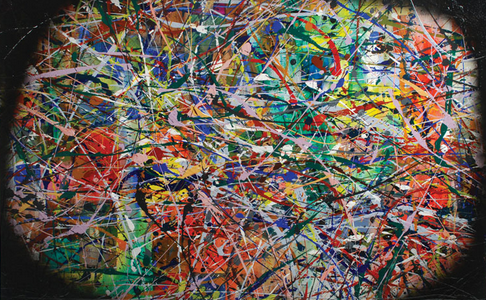When I was asked to write a blog that might contribute to a platform of knowledge and skills to address complex social and environmental problems, I had been grappling with several such problems in my own life. To note two in particular; the protests at the University of Cape Town (UCT), calling for free higher education and more general effort to address the inequalities that remain in South Africa, from which a huge number of people still unjustly benefit, and the drought in Cape Town.
People within my immediate surroundings (which comprises the middle to upper class, privileged community) generally have very strong opinions on the complex problems described above. It’s remarkable how boldly people make statements about some of the issues that should surely be approached very sensitively; perhaps a symptom of not digging up enough information, not experiencing the consequences of issues that are being surfaced, or simply because of very natural defenses. Generally, a person’s perspectives on these matters reflect their strong underlying personal values that align with one portion of a large, multifaceted picture. We’ve also been brought up to prioritise being correct and with this, offer complete answers (i.e. deliver “bulletproof” arguments) for this portion.
I have personally always enjoyed knowing. In the past, learning helped me know more about how things work, and I could contribute to solving problems by bringing in bits and pieces of knowledge. We’ve done a great job of understanding the different aspects of our reality and explaining to some extent, how they fit together. We’ve moved far in understanding causal pathways and have made some progress towards knowing about relational connections too. Working in applied sciences with a focus on complex African city-regions is, however, helping to constantly reaffirm how little I know. This realisation is scary, as it would be for most people who have been taught that there is always a complete answer. But if we’re going to deal with the social and environmental problems now and ahead of us, we’re going to have to acknowledge our partial knowledge, accept that another way of knowing might be more beneficial despite the potential threats to our values and privileges, and REALLY brush up on our listening skills.
A recent conversation about the drought in Cape Town with a representative from government served to remind me of the multi-dimensionality of the problems that we face, and the need to evolve approaches to manage these. Firstly, any new response requires a lot of prior learning and reflection, a process that does not yet receive enough attention. How does one know when the methodology of running a system that has worked well in the past is no longer working? Cape Town has historically received enough rain to support a population and is constantly making decisions about trade-offs. Their big focus for the next five years is spatial transformation to overcome the legacy of apartheid; with uncertain information on which to make decisions and a tight budget, this is where resources have been focussed. A while ago, the City developed a strategy to serve the water requirements of a growing population, but the drought fast-forwarded the need to implement. Many of the decision makers lived in the same hope that we (as the Cape Town community) have lived; sometime soon it will rain. They had a plan in place and everything in their memory told them to manage the system in line with this plan. According to some scientists and models, the rains could have come. So how closely do we observe a system and at what point do we say; okay, now it’s time to change our strategy. In essence, when does one know if their system is broken? How much “fat” do we add to a working system in the event of a breakage (i.e. buffering)? And most importantly, who bears the cost of this fat?
These conversations often give rise to more questions than answers, but one might contemplate two important things; the necessity to consider multiple perspectives when dealing with these problems and an openness to relearn. Our mode of learning to seek whole, confident answers means that we sometimes miss the telling nuances in between. This tendency has also resulted in a world of very opinionated speakers, who are sometimes not very good at listening, looking inwards and relearning when need be. As we grow older, the values and perspectives of the society in which we are embedded become more concrete within us. Trying to understand a different perspective might leave us feeling uncomfortable because of a conflict with these solidifying values and our natural defenses. But many of our current socio-economic systems are in fact broken, at least for some people, and require change. We should accept responsibility and manage the changes around us by managing the necessary shifts within us. We should constantly improve our listening skills, which will help us understand multiple narratives (or perspectives) of a person or situation. Being open to questioning our values (or at least understanding others) might enable spaces for much-needed dialogue, and facilitate changes at multiple levels. I believe that at the core of these skills, sits a little bit more humility and respect.
